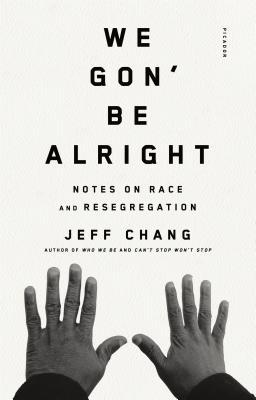What do you think?
Rate this book


192 pages, Paperback
First published September 13, 2016

"Racism is not merely about individual chauvinism, prejudice, or bigotry. Ruth Glimore reminds us that it is about the ways different groups are 'vulnerable to premature death,' whether at the hands of the state or structures that kill."
"Protests of moral and historic force begins with people facing extreme vulnerability. For those who have been silenced, rising to active speaking is a high climb indeed. For them, protest is not an expression of fear and doubt but an overcoming of fear and doubt. And when it comes from those at the bottom, it can be often a profound proposition about how to make it better for all. ”
"The foreclosure crisis revealed that high-income blacks were not protected from racist and predatory housing and lending practices, nor were Latino and Asian American home purchasers. So when the crash came, blacks and Latinos were 70% more likely to lose their homes due to foreclosure. A national study that examined almost all the foreclosures between 2005 and 2009 found unequivocally that the highest rates of foreclosure were in racially integrated neighborhoods. Since the single biggest asset for an overwhelming majority of the household of color was their home, the national wealth gap between whites and all other racial groups was larger than ever. Between 2005 and 2009 White household net worth dropped by 16% but plunged 53% for Blacks, 54% for Asians and 66% for Latinos.”
“Resegregation matters because it pulls communities and regions downward, and because it impacts us not just right now, but the life chances of those not yet born.”
"A turn in fortune should move us toward empathy and solidarity....But we live in a time when merchants of division draw us away from mutuality and toward the undoing of democracy itself."
"The truth would be difficult to speak, but it would be necessary to begin to right the wrongs done to Blacks and Coloureds. Reconciliation would not be a gift, but an 'exchange for truth.' In other words, peace and justice are inseparable from each other."
The real benefit of a vital, equitable culture lies well beyond the money there is to be made. It offers us a sense of individual worth, bolsters our collective adaptability, and forms a foundation for social progress. In that sense, cultural diversity is just like biodiversity—at its best, it functions like a creative ecosystem. The final product of culture is not a commodity, it is society.
But we are far from that ideal. If cultural activism and justice movements can succeed in decentering whiteness and improving access and representation—and all the evidence suggests that the odds on that are still very long—we will still need to address the ways in which we see each other. Perhaps one day we may no longer need an #OscarsSoWhite hashtag. But we will still have to deal with the kinds of inequities that made #NotYourMule. What, then, will a culture of transformation look like?
when a natural disaster tears apart a village, the human tendency is for one neighbor to help another, regardless of whatever feelings they may have had for one another before the catastrophe. but we live in a time when merchants of division draw us away from mutuality and toward the undoing of democracy itself.a series of essays on race and resegregation, jeff chang's new book, we gon' be alright, is a thought-provoking, measured, and perceptive look at post-ferguson america. exploring a variety of subjects, including the 2016 primaries, affirmative action, campus protests, the black lives matter movement, under-representation in the arts, "geographies of inequality," gentrification, displacement, white flight, poverty, racial effects of the great recession, beyoncé's lemonade lp, and the author's own asian-american heritage, chang (author of the incomparable can't stop won't stop: a history of the hip-hop generation ) provides an incisive glimpse into our cultural/national struggles to overcome and contend with our racist past and present. eschewing a polemical approach, we gon' be alright instead chronicles our current social milieu with a patient yet incisive eye, espying clearly the many challenges we face collectively and bringing a critical approach to issues of race, racism, and resegregation. chang's new book is a wonderful, necessary addition to (more personal) recent works exploring race in america (including ta-nehisi coates and mychal denzel smith).
each of us is left with the question: can we, given all the pain that we have had inflicted upon us and that we have inflicted upon others, ever learn to see each other as lovers do, to find our way toward freedom for all?